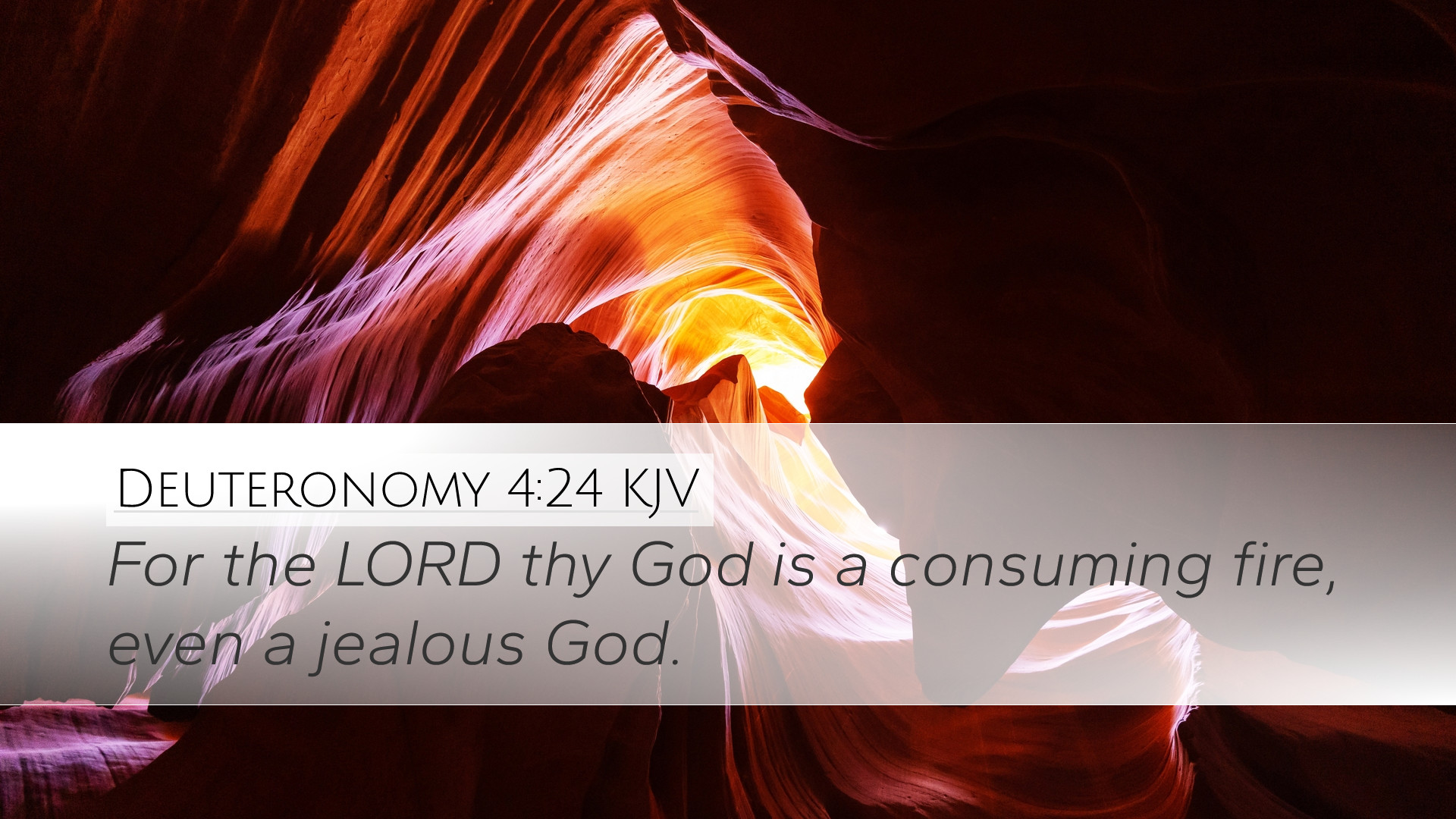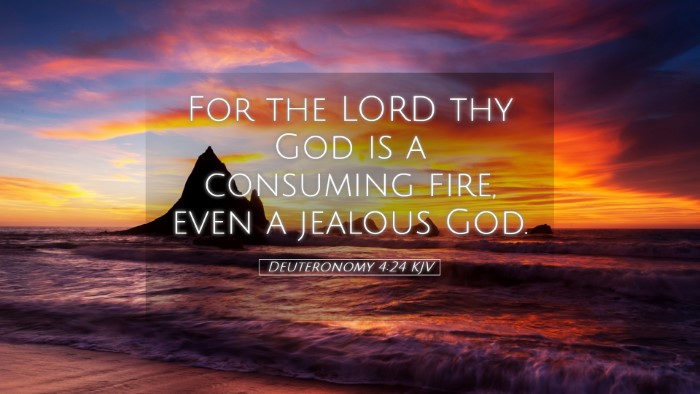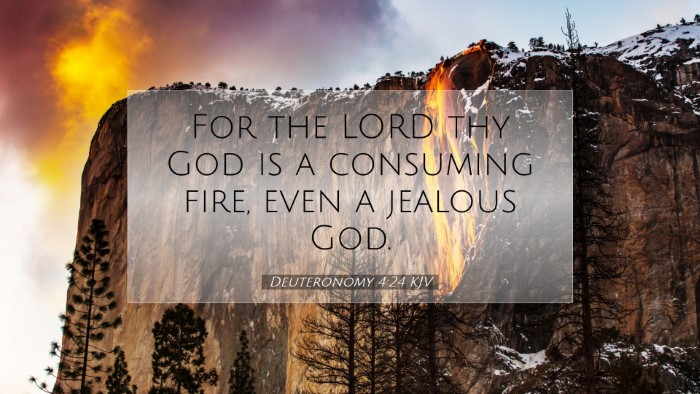Commentary on Deuteronomy 4:24
Verse Reference: Deuteronomy 4:24 (KJV) - "For the LORD thy God is a consuming fire, even a jealous God."
Introduction
This verse encapsulates a profound theological truth about the nature of God, emphasizing His holiness, justice, and unwavering commitment to His people. The imagery of God as a "consuming fire" signifies both His power and His purifying judgment. This commentary compiles insights from respected public domain theologians to provide a deeper understanding of this striking declaration.
The Nature of God as a "Consuming Fire"
The depiction of God as a consuming fire relates closely to His holiness. Matthew Henry notes that fire in Scripture often symbolizes purity and the divine presence. Just as fire consumes impurities in gold, so does God's holy presence consume sin and transgression among His people.
Albert Barnes further elaborates that the term "consuming" suggests that God's holy nature is intolerant of sin; it devours what is contrary to His righteousness. This serves as a warning to Israel, reminding them of God's unyielding commitment to holiness and justice.
The Jealous Nature of God
The latter part of the verse, identifying God as a "jealous God," conveys His desire for exclusive allegiance from His people. Adam Clarke emphasizes that God's jealousy arises from His love and covenant relationship with Israel. He desires their devotion as a rightful response to His faithfulness.
In a biblical context, jealousy is often a righteous reaction to betrayal or infidelity. Here, it implies that God will not tolerate idolatry or spiritual unfaithfulness. Just as a husband desires fidelity from his wife, so does God desire the loyalty of His people.
The Context of Deuteronomy 4
This verse is situated within the larger context of Moses' exhortation to Israel as they prepare to enter the Promised Land. The people are reminded of the covenant established with God and the consequences of turning away from His commandments. Matthew Henry suggests that this serves as both a warning and a motivation, inviting Israel to reflect on their covenant responsibilities.
- Call to Remembrance: The preceding verses recount God's mighty acts on behalf of Israel, underscoring His faithfulness.
- Warning Against Idolatry: Moses explicitly warns against the dangers of forsaking God for idols, which is tied to the consuming nature of God.
- Encouragement to Obedience: The recognition of God as a jealous God should motivate Israel to remain steadfast in their devotion.
Theological Implications
The implications of viewing God as a consuming fire and a jealous God are vast and can impact both individual believers and the faith community at large. This dual portrayal emphasizes the necessity of reverence toward God and the commitment to uphold His commandments.
- Holiness and Purity: Believers are called to seek purity in their lives, reflecting God's holiness.
- Devotion and Loyalty: The focus on God's jealousy encourages a personal and corporate commitment to worship Him alone.
- Accountability: Understanding God's consuming fire serves as a reminder of divine accountability, urging believers to live in accordance with His will.
Practical Applications
The truths offered in this verse can inspire pastors, students, and theologians alike to engage in reflective practices that draw them closer to God. Some practical applications include:
- Regular Self-Examination: A routine time of confession and seeking purification before God can foster spiritual health.
- Teaching on Idolatry: Pastors may explore themes of idolatry in contemporary culture, encouraging congregants to recognize and forsake anything that rivals their devotion to God.
- Encouraging Covenant Faithfulness: Worship and discipleship practices that emphasize obedience to God's commandments can be reinforced within church life.
Conclusion
Deuteronomy 4:24 invites reflection on the dual attributes of God as both a consuming fire and a jealous God. It serves to remind the faithful of God's holiness and the seriousness of their covenant relationship with Him. As we navigate our faith journeys, let us embrace God's consuming nature to purify us and his jealousy as a call to faithfulness, ensuring that our lives reflect our commitment to Him.


